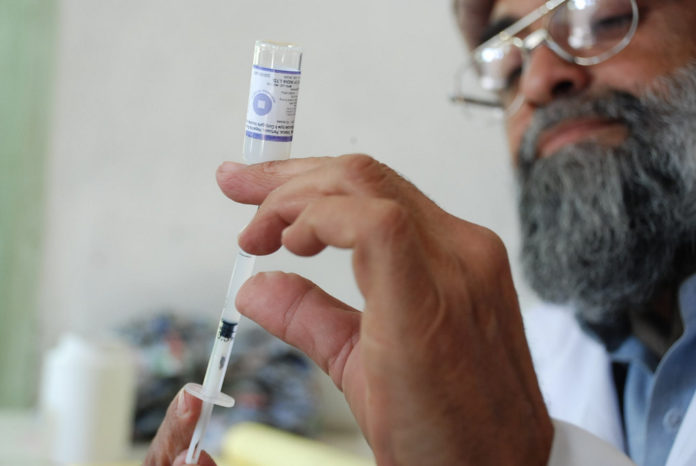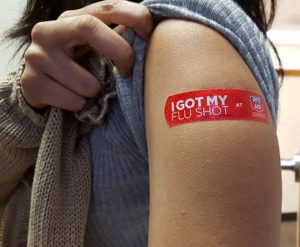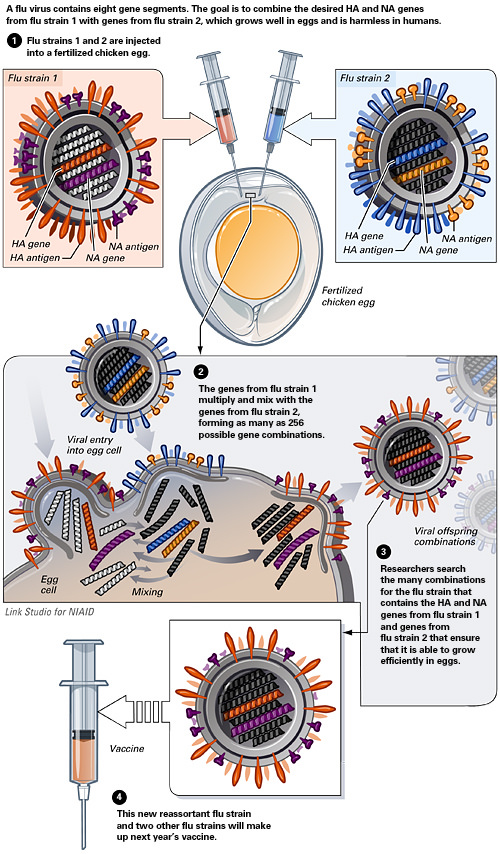
Delhi for now is gasping for breath. While pollution is hogging headlines and mindspace, time may be running out for that flu shot in preparation for Delhi’s harsh winter. India introduced Haemophilus Influenzae Type B (Hib) vaccine into the routine immunisation programme earlier this year but adults in the country largely remain unvaccinated. The result: lost mandays and illness.
 What is influenza?
What is influenza?
Influenza commonly known as Flu is a disease associated with symptoms of low grade fever, running nose, dry cough, headache, malaise and bodyache. Fever is sometimes high grade going upto 104 degrees F with chills and sweating. It is not uncommon for young children to have higher temperature than adults. Flu usually lasts for about a week but you may continue to feel tired for several days after the symptoms have subsided.
Is there really a “flu” season?
 There is, actually. The disease usually picks up in the winter months starting October and lasts upto March of every year. It is a contagious disease which means affected individuals can pass on the infection to people who come in contact with them. It can sometimes lead to more serious complications like sinus and ear infections, pneumonias, life threatening sepsis etc. Young children below 5 years of age, senior citizens, pregnant women, people with preexisting chronic diseases (like Diabetes, Tuberculosis,COPD, asthma etc) and smokers are particularly at risk of serious infection due to weakened immune system. High levels of household and ambient air pollution are also associated with increased complication rates.
There is, actually. The disease usually picks up in the winter months starting October and lasts upto March of every year. It is a contagious disease which means affected individuals can pass on the infection to people who come in contact with them. It can sometimes lead to more serious complications like sinus and ear infections, pneumonias, life threatening sepsis etc. Young children below 5 years of age, senior citizens, pregnant women, people with preexisting chronic diseases (like Diabetes, Tuberculosis,COPD, asthma etc) and smokers are particularly at risk of serious infection due to weakened immune system. High levels of household and ambient air pollution are also associated with increased complication rates.
Who can take a flu shot?
 The best way to prevent the illness and its spread is by receiving a shot of Flu Vaccine which is recommended for everyone above the age of 6months of age. The Flu vaccine is produced from the influenza virus that has been weakened or inactivated. Since there are variations, known as “strains,” in the flu virus from year to year, and place to place, vaccines protect against the three or four strains that research shows will be most common during the upcoming season. These are known as trivalent (three-sided) or quadrivalent (four-sided) vaccines. It is usually administered in the form of injection. It takes about two weeks for the antibodies against flu to develop.
The best way to prevent the illness and its spread is by receiving a shot of Flu Vaccine which is recommended for everyone above the age of 6months of age. The Flu vaccine is produced from the influenza virus that has been weakened or inactivated. Since there are variations, known as “strains,” in the flu virus from year to year, and place to place, vaccines protect against the three or four strains that research shows will be most common during the upcoming season. These are known as trivalent (three-sided) or quadrivalent (four-sided) vaccines. It is usually administered in the form of injection. It takes about two weeks for the antibodies against flu to develop.
Are there any complications of the vaccine?
You may sometimes develop mild Flu like symptoms post immunisation. The flu shot may cause soreness, redness, tenderness or swelling at the injection site, as well as a low-grade fever, which should only last for a day or two and improves with oral paracetamol or ibuprofen. Aspirin should be avoided in children because of risk of a very rare but fatal condition called Reye’s Syndrome. Serious allergic reactions to the vaccine is rare and it usually develops within few minutes to hours and should be reported to the doctor immediately.
Which vaccine does one take?
In India the commonly used vaccine contains Influenza Vaccine (A&B)& H1N1 Vaccine (Swine Flu) strains. Individuals in highly populated, low to medium income countries like India are at increased risk of infections and it is recommended by most doctors to get your Flu shot before the advent of winter.














